
Since 1950, Salesian Missions has been providing crucial help in the Philippines — working with at-risk youth, impoverished families and disaster victims. Humanitarian agencies warn of the dangers faced by the most disadvantaged children in the Philippines. According to the report, there are at least 1.2 million children between the ages of 5 to 15 years old who are out of school and are being left behind. In addition, children born into the poorest 20 percent are almost three times more likely to die during their first five years as those from the richest 20 percent.
Salesian missionaries, supported by funding from Salesian Missions, were also on the forefront of disaster relief during and reconstruction after the Nov. 8, 2013 Super Typhoon Haiyan (locally known as Yolanda) devastated the country. According to United Nations estimates, 11.5 million people were affected by Haiyan and close to 1 million were displaced. More than half a million were homeless and living in the streets among the debris. Salesian missionaries mobilized all resources and efforts to aid the victims of this and other disasters.
Salesian missionaries, supported by funding from Salesian Missions, were on the forefront of disaster relief during — and reconstruction after — the Nov. 8, 2013 Super Typhoon Haiyan (locally known as Yolanda) devastated the country. According to United Nations estimates, 11.5 million people were affected by Haiyan and close to 1 million were displaced. More than half a million were homeless and living on the streets among the debris. Salesian missionaries mobilized all resources and efforts to aid the victims of this and other disasters.
Salesian Missions supported programs in the Philippines that assisted 200,000 families in the aftermath of the super typhoon. Salesian missionaries were already working with vulnerable children and their families through their schools, youth centers and other community programs — making them immediately on the front lines of the relief efforts. Salesian buildings in Cebu were named Official Help Centers and work began immediately after the typhoon struck. Students, teachers, staff and volunteers worked alongside missionaries to collect, prepare and pack relief goods. In cooperation with the National Crisis Management Unit in the Philippines, 25,000 emergency kits were distributed in the days immediately following the storm. Salesian missionaries were also able to assist with logistics — identified by many aid experts as not only a top need, but the biggest challenge. Thanks to these efforts, peaceful and efficient aid was delivered helping those in need.
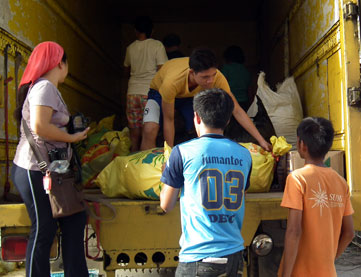
The Salesian parish in Tondo serves close to 100,000 parishioners, many in need of nutrition, health care and other supportive services. Don Bosco TVET provides educational services within this local community, reaching nearly 5,000 youth who attend the two elementary schools and one high school. Salesian missionaries also support the community through technical and vocational training, a hostel and youth center.
One year after Typhoon Haiyan devastated portions of Southeast Asia, particularly the Philippines, Salesian missionaries working in the region had successfully completed community rehabilitation and rebuilding projects allowing survivors to return to their normal lives. Initiated in the wake of the storm, the Don Bosco Adopt and Rebuild a Community Project (Don Bosco ARC) began replacing destroyed homes and buildings that were poorly constructed before the storm with ones that can withstand future weather events. In 2014, close to 150 homes were completed. The Don Bosco ARC project benefited 2,700 families on four separate islands. Families received materials to repair roofs and walls and were able to return to their homes.
Salesian missionaries also focused their efforts on building shelters for the disaster prone country. Of the nearly 500 temporary shelters in Eastern Samar, Aklan and on the island of Bantayan, 417 are completed and others are under construction. Salesian missionaries also focused their rebuilding efforts on schools with 11 new schools, eight of which are in Leyte, two in Cebu and one on the island of Bantayan.
Salesian missionaries provide technical and vocational training for many industries in educational programs across the Philippines. The Don Bosco Technical Institute in Makati City has had an ongoing partnership with Porsche AG and PGA Cars in the Philippines since 2008. Porsche collaborates with Don Bosco Technical Institute in Manila to help underprivileged young adults gain the skills they need to find employment within one of its service centers. The partnership provides a program in auto mechanics that allows top students from Don Bosco Technical Institute to enter into the Porsche Training and Recruitment Center Asia (PTRCA).
Students enrolled in the program complete a 10-month basic training course that includes both theoretical and practical training at the Don Bosco Technical Institute where Porsche has set up and equipped a separate training facility. During the program, students undergo advanced Berlitz-administered language lessons in English and Spanish, as well as training in customer service.
Twice a year the Institute selects its top 35 students to advance to the PTRCA’s comprehensive nine-month training program with Porsche specialists, where students train on official Porsche vehicles using Porsche specialized tools. The program’s curriculum is continuously developing and adapting to the latest innovations and technology. The facility boasts state-of-the-art technical training equipment along with advanced training and testing equipment, complete with the latest specialized tools.
Salesian missionaries also have a focus on agriculture education. Salesian missionaries launched the Don Bosco Agro-Mechanical Technology Center in Banquerohan, Legazpi City in 2000. The school consists of an Agricultural Technology Center and adjacent Don Bosco Demonstration Farm. The technology center educates 170 rural youth each year, and the farm helps more than 2,000 young graduates start their own livelihoods. Salesian Missions donors have ensured that students have the training and equipment they need for their new soybean production program.
Don Bosco Technical and Vocational Training Centers in southern Philippines have been able to provide a blended learning environment for students and teachers during the new 2020-2021 school year thanks in part to funding received from Salesian Missions. The funding supported more than 500 trainees and 48 instructors in eight Don Bosco centers in Cebu, Negros, Iloilo, Eastern Samar in the Visayas Islands and Davao in the Mindanao Islands.
With Salesian Missions funding, the project set-up eight recording rooms in each of the Don Bosco centers for digital production of learning materials. In addition, the funding provided a trainee’s package comprising of an on-the-go flash drive, printed modules, two washable face masks and one face shield. Trainees were also given a rent-to-own tablet and a food and accommodation subsidy to boarder-trainees during face-to-face classes. The funding further gave an instructor’s incentive for blended learning through free internet load and rent-to-own laptops.
Don Bosco Technical College (known as Don Bosco Cebu), located in Cebu City, will be empowering the next generation of STEM students thanks to the new “Realizing 21st Century Learning in Don Bosco Cebu” project. This project was made possible thanks to a grant from the United States Agency for International Development’s American Schools and Hospitals Abroad (USAID/ASHA) program secured by Salesian Missions.
The project, which will run until October 2026, will construct and equip a new science and technology building on the Don Bosco Cebu campus. The first two years of the project will be focused primarily on construction and the last two years will create educational programming, integrating STEM across the curriculum and encouraging young women to engage in STEM education.
The project will also create a youth-focused learning hub at the SciTech Center to support marginalized students in fostering creative scientific ideas. The center will feature learning laboratories to promote creative applications and a multipurpose hall that will be used for science fairs, remote discussions with American scientists and other idea sharing. Students will learn analytical and critical thinking skills to develop impact-driven innovations. It will empower them to be the next generation’s leaders. In the second half of the project, once the SciTech Center is built, there will be a focus on encouraging more young women into the STEM education and employment field.
In 2010, Salesian missionaries in the southern province of the Philippines started the Magone Home Aftercare Program, which is located in the Don Bosco Boys’ Home and Training Center on the island of Cebu. The program works to reintegrate youth who have been in conflict with the law back into a community setting. Salesian missionaries have a 30 year history in the Philippines working with young prisoners.
The Magone Home Aftercare Program is staffed by a director and assistant director with support from social workers, psychologists, teachers and house-parents. Together they are known as the Magone Help Team. Each year the team oversees 20 youth who live at the center and another 20 who are living within the community. To date, the program has worked with 129 youth whose offenses include murder, rape, theft and robbery. In total, 73 youth have already reintegrated. Of this group, 37 youth are profitably employed, 45 are living with their families and 24 are living independently. The Philippines’ Government of Social Welfare Department has declared the Salesian program a model of best practice for reintegration which should be replicated by private institutions, organizations and government agencies involved in working with children in conflict with the law.
In 2019, Salesian Missions provided funding to the Magone Home Aftercare Program to pay for critical staff positions. The funding helped support the work of two psychologists, two educators, two social workers and two houseparents for one month.
The Salesian-run Tuloy Foundation in Muntinlupa, the southernmost city of the 16 cities that make up Metro Manila or the Philippine National Capital Region, provides residential care services and education for more than 800 street, migrant and orphan youth. Founded in 1993 by Father Marciano “Rocky” G. Evangelista, the Foundation began with just 12 children. Since that time, it has grown to encompass multiple programs and facilities and has helped thousands of youth gain an education and go on to lead successful lives.
The Tuloy Foundation goes beyond providing a home for at-risk youth. Once off the streets, participants are removed from a life exposed to begging, theft, drugs and prostitution, among other negative influences. Children must be at least 9 years old to enter the Foundation’s school program which begins in first grade and continues through technical training. Those who are just coming in off the streets receive food, clothing, shelter, health care, recreation, education and skills training. Older youth pursue technical training in a variety of technologies including automotive, electrical, welding and woodworking, in addition to other studies. Participants also have the ability to access on-the-job training in sponsor companies.
The Laura Vicuña Foundation, managed by the Salesian Sisters of St. John Bosco in Manila, was founded in 1990 and has a center for the healing and recovery of sexually abused, exploited and trafficked youth. It also has two technical schools and an alternative learning program to aid in the protection of youth in high-risk communities in metro Manila.
According to aid agencies, there are an estimated 1.5 million street children in the Philippines, about 75,000 of whom are living in Manila, with thousands more ending up homeless every month. Drop-out rates double as children reach secondary school and there are more than 11 million out-of-school youth.
In 2012, the Laura Vicuña Foundation received the Impact Award under the Protection Category in the Asia Pacific Region from the Stars Foundation in London. The comprehensive work of the Foundation, particularly its pioneering child protection clinic on wheels and its three Children of the Canes national conferences focusing on a socially responsible sugar industry, were highlighted as programs that helped it secure the award. The Salesian Sisters of St. John Bosco used the $100,000 prize money received with the award to help build a larger facility for the healing and recovery of sexually-abused girls. The new building also houses a training center and the Foundation’s offices.
The Laura Vicuña Foundation also offers technical education to empower youth by training them in the skills necessary to find and retain stable employment and lead lives free from poverty and exploitation. In addition to attending classroom seminars, students enrolled in the Foundation’s technical training programs have access to hands-on skills training and internships set up through the Foundation and the local business community.
Salesian missionaries across the Philippines incorporate sports programs into their traditional educational activities. The Madridejos Football Club of Cebu Province recently extended its programs to Bantayan Island and donated soccer balls to Salesian elementary and high school students and those attending Salesian youth programs. The soccer program is part of the rehabilitation and rebuilding assistance provided by Salesian missionaries since the Super Typhoon Haiyan devastated much of the country in 2013. The football club has helped many young people remain in school, and for many players, their skills on the field have granted them access to scholarships that have allowed them to continue their studies at the university level.
Sports programs teach youth both on and off the field. Learning and playing team sports encourages leadership skills as well as teaches youth to work as part of a team. Students also learn important social skills and have opportunities for growth and maturity.
Salesian missionaries partnered with Schneider Electric to bring a new Green Electrician’s Laboratory project to Don Bosco Technical-Vocational Education and Training Center in Mandaluyong City. Schneider Electric is a European multinational corporation that specializes in electricity distribution, automation management and the production of installation components for energy management.
This new partnership in the Philippines was created to teach unskilled and underprivileged youth skills in the electrical profession. The quality technical training involves providing high-end didactic tools and equipment as well as an upgraded 14-month curriculum. A minimum of 30 students each year will be taught and given on-the-job training on electrical installation and maintenance.
In line with Schneider Electric’s push for sustainable energy management, part of the curriculum involves course work and training on house and building wiring, fundamentals of electrical safety, troubleshooting and monitoring of electrical installation in both residential and commercial buildings, basics of residual solar energy installations and running a small business. It also provides life skills such as spoken and written English, computer basics, soft skills and entrepreneurship. Upon completing the training, students will be given a National Certification 2 qualification for electrical installation and maintenance from the Technical Education and Skills Development Authority.
More than 500 people were able to access free medical care at a medical clinic hosted by Salesian missionaries from Don Bosco Technical-Vocational Education and Training Center (Don Bosco TVET) in Tondo, a district located in Manila. Salesian missionaries held the medical clinic in collaboration with Rotary Chinatown-Manila and the Federation of Filipino-Chinese Chambers of Commerce and Industry, Inc. The clinic was staffed by expert physicians, optometrists, dentists, nurses and radiologists from Justice Jose Abad Santos Mother and Child Hospital.
Many poor residents in the community are unable to access regular health care. The medical clinic was set up to provide much needed medical services, including wellness exams for men and women, pediatric exams, dental and eye care, x-rays and electrocardiograms. Medicine was also made available to those who needed it. In addition, the medical clinic taught children about proper hand washing and dental care. Coloring books were also provided to the youth during the event.
Poor youth and their families attending the Mary Help of Christians parish, located in Mindanao, have access to clean, safe water thanks to funding provided by Salesian Missions’ “Clean Water Initiative.” The Salesian parish continues to care for more than 1,400 Catholic families who live in the surrounding five local villages. They attend services in the 24 chapels dispersed in the area. The parish also offers a small farm next the church, which contributes to the daily sustenance of the Salesian community in Calinan. A water system is set up in Dacudao that provides an adequate safe water supply to about 2,000 residents.
Recently work needed to be completed to improve this water system. With the funding provided by Salesian Missions, the project entailed the installation of water pump and pump house, water tanks and pipe lines. An 8-inch, 100-meter deep water well borehole with a 6-inch casing was dug followed by the installation of a water pump. Constant discharge pumping tests were done and the construction of a pump house was also completed. The construction of the raised water storage stand and the installation of a water tank completed the project.
Residents of Dacudao are happy that they now have an additional source of clean water. Many nearby residents are able to conveniently access water from the faucets strategically located in the farm. The new water supply was also effective is helping those affected by the December 2017 typhoon, Tropical Storm Vinta, which damaged a large area in Mindanao including those living in Calinan.
In 2020, the Salesian St. John Bosco Parish, in Murcia, Negros Occidental, had access to clean water thanks to a new project funded by Salesian Missions. The new water supply will serve more than 15,000 people accessing the Salesian Youth Center, kindergarten, parish office and rectory. The project included the installation of pipelines for a new water source, construction of a raised stand for the water tank, and installation of a water tank and motor pump.
One year after Typhoon Haiyan devastated portions of Southeast Asia, particularly the Philippines, Salesian missionaries working in the region had successfully completed community rehabilitation and rebuilding projects allowing survivors to return to their normal lives. Initiated in the wake of the storm, the Don Bosco ARC began replacing destroyed homes and buildings that were poorly constructed before the storm with ones that can withstand future weather events. In 2014, close to 150 homes were completed. More than 2,700 families received materials to repair roofs and walls and were able to return to their homes.
Salesian missionaries also focused their efforts on building shelters for the disaster-prone country. Of the nearly 500 temporary shelters in Eastern Samar, Aklan and on the island of Bantayan, 417 are completed and others are under construction. Salesian missionaries have also focused their rebuilding efforts on schools with 11 new schools, eight of which are in Leyte, two in Cebu and one on the island of Bantayan.
In another infrastructure project, Salesian missionaries launched an organic cocoa plantation in Ginatilan, Cebu, an island province consisting of the main island itself and 167 surrounding islands and islets. The project was built on 500 square meters of land and accommodates 200 cocoa plants that will bear fruit. The project also included building a house with dormitories and a kitchen and bathroom facilities for staff.
The goal of the project is to counter child labor and the harsh labor conditions often found in the cocoa industry. Salesian missionaries train agricultural technicians about the cocoa crop so they can manage the nursery. It also serves to motivate local farmers working at the cocoa plantation to treat all workers humanely.
From Philippines

From Philippines
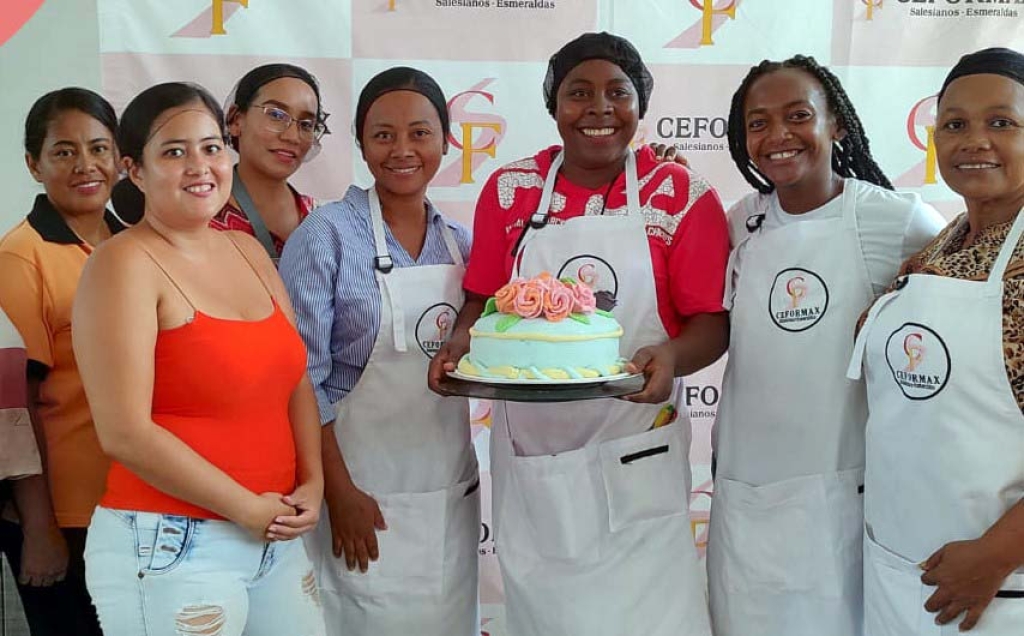
Targeted programs provide opportunities for education and training. NEW ROCHELLE, NY (March 8, 2025) Salesian Missions, the U.S. development arm of the Salesians of Don Bosco, joins humanitarian organizations and countries aroun

Salesian missionaries offer more than 150 medical clinics and hospitals in mostly rural areas. NEW ROCHELLE, NY (Feb. 11, 2025) Salesian Missions, the U.S. development arm of the Salesians of Don Bosco, joins Catholic organizati
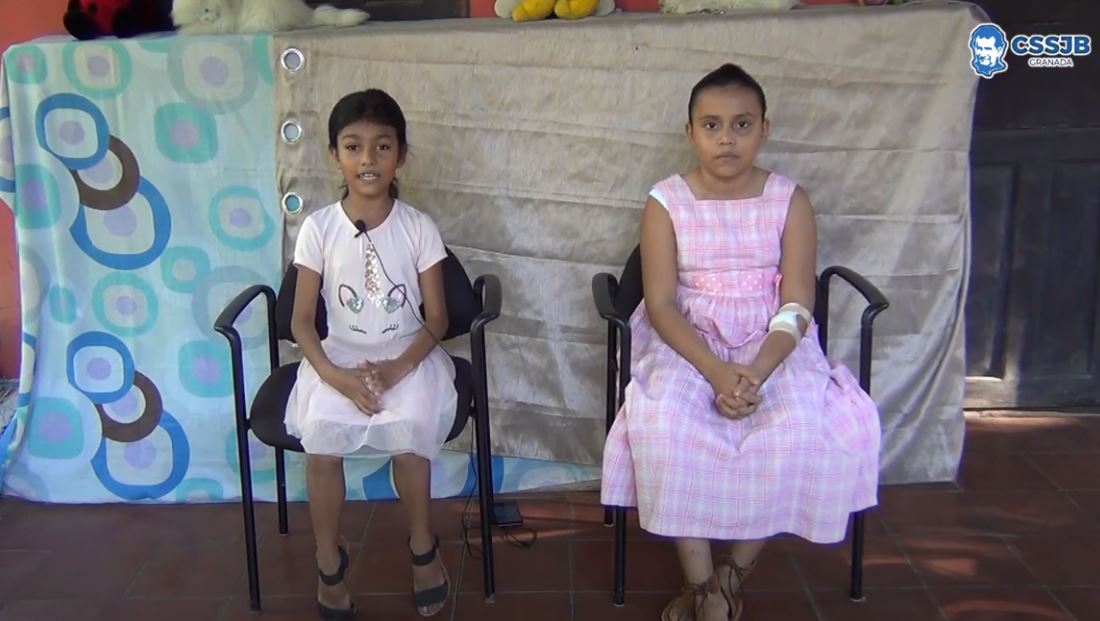
Salesian missionaries teach essential skills around the globe. NEW ROCHELLE, NY (Sept. 8, 2024) Salesian Missions, the U.S. development arm of the Salesians of Don Bosco, joins humanitarian organizations and countries around the g
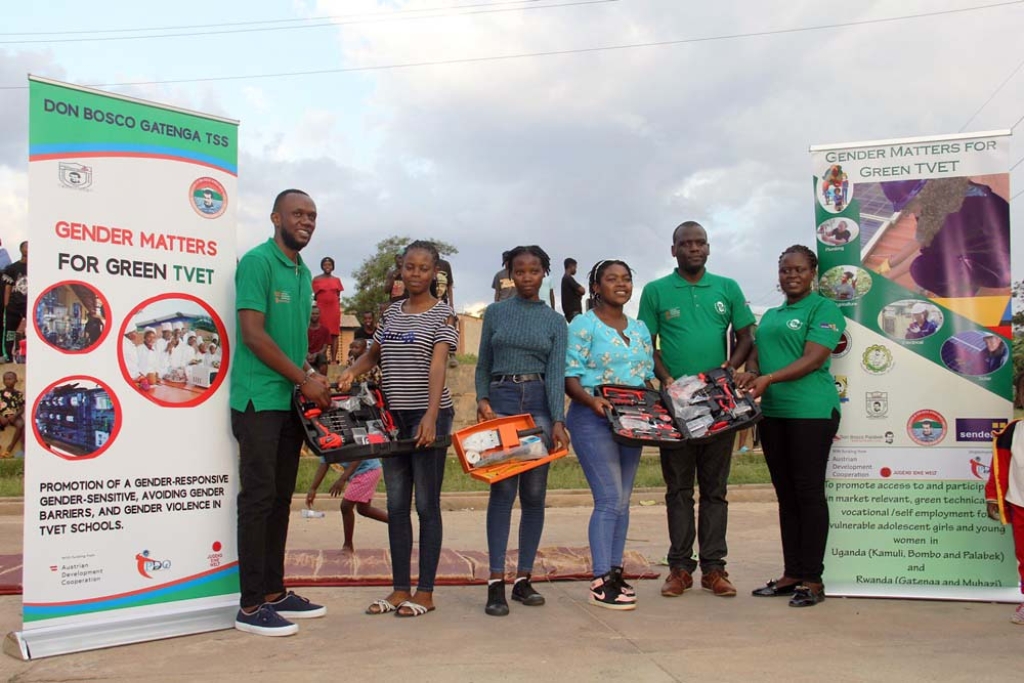
Programs provide opportunities for education and training. NEW ROCHELLE, NY (March 8, 2024) Salesian Missions, the U.S. development arm of the Salesians of Don Bosco, joins humanitarian organizations and countries around the globe
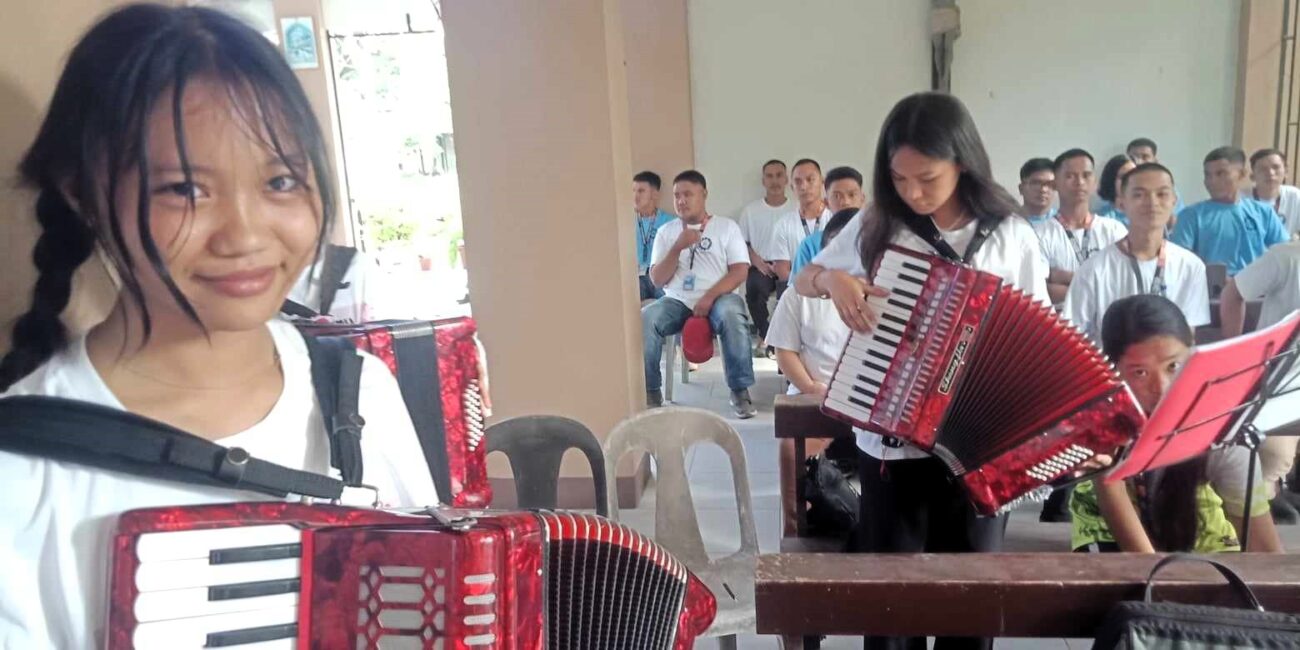
Donor funding from Salesian Missions provides music opportunities for all students. NEW ROCHELLE, NY (Feb. 20, 2024) Youth at Don Bosco Boys’ Home in Liloan, Cebu, Philippines, have 15 new accordions thanks to donor funding from
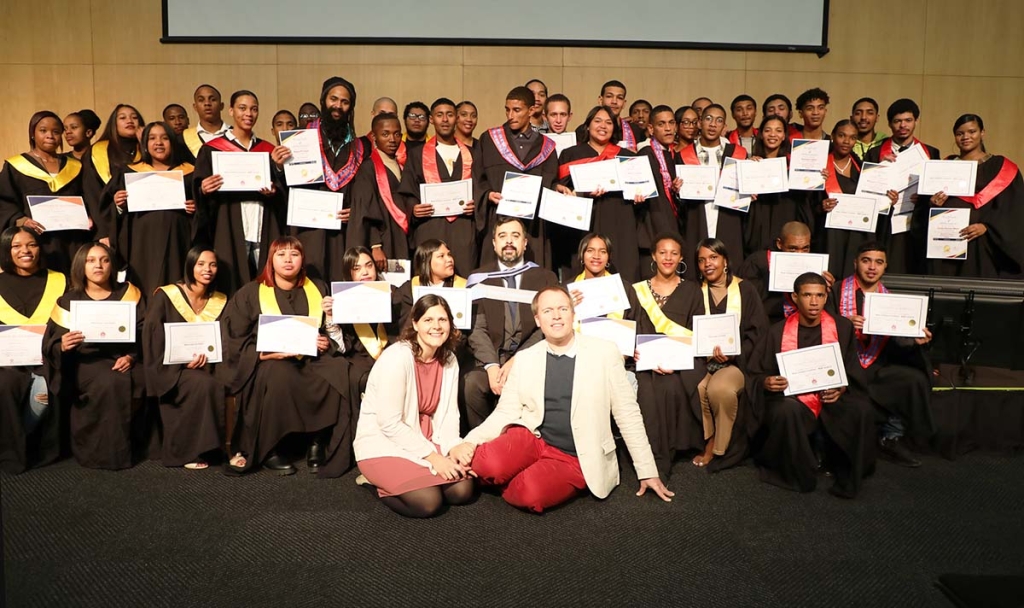
Salesians considered largest private provider of vocational and technical training in the world. NEW ROCHELLE, NY (Jan. 24, 2024) Salesian Missions, the U.S. development arm of the Salesians of Don Bosco, joins humanitarian organi
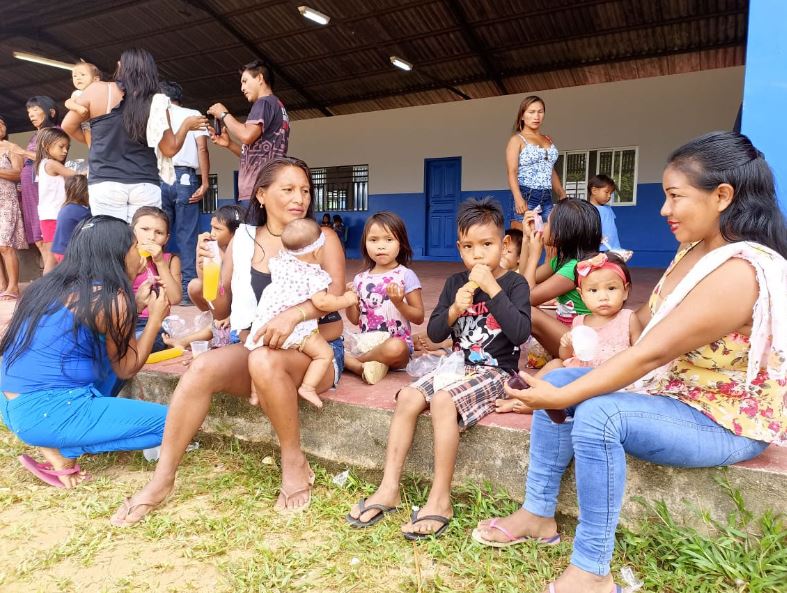
World Children’s Day promotes international togetherness and awareness on children’s issues. NEW ROCHELLE, NY (Nov. 20, 2023) Salesian Missions, the U.S. development arm of the Salesians of Don Bosco, joins humanitarian or
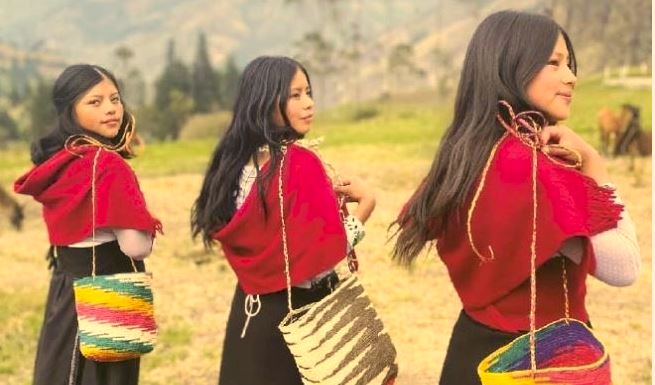
Day focuses on ‘Rural women confront the global cost-of-living crisis’. NEW ROCHELLE, NY (Oct. 15, 2023) Salesian Missions, the U.S. development arm of the Salesians of Don Bosco, joins humanitarian organizations and countries

Report released by UN Women and United Nations Department on Economic and Social Affairs. NEW ROCHELLE, NY (Oct. 12, 2023) More than 340 million women and girls will live in extreme poverty by 2030 and close to one in four will ex
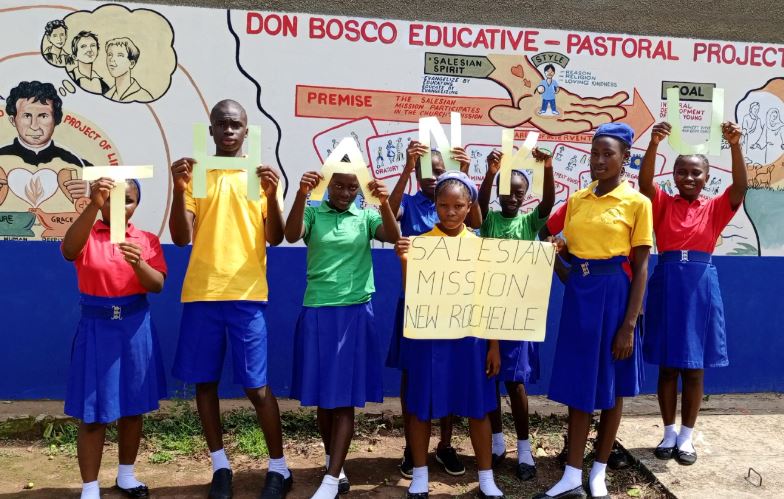
Salesian missionaries focus on essential educational including literacy, skill building. NEW ROCHELLE, NY (Sept. 8, 2023) Top of Form Salesian Missions, the U.S. development arm of the Salesians of Don Bosco, joins humanitarian or
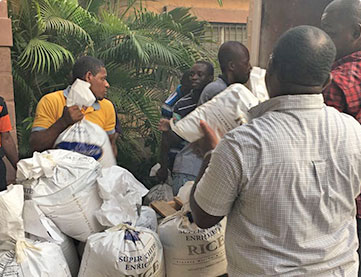
Salesian Missions includes agriculture in its vocational training programs – to ensure that youth of Rwanda learn better agricultural practices as well as keep the school self-sustaining in the face of the country’s food shortages.
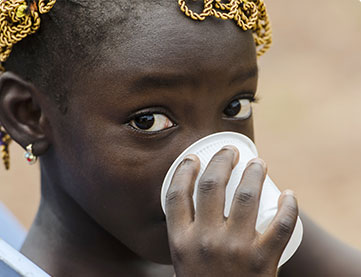
Salesian Missions includes agriculture in its vocational training programs – to ensure that youth of Rwanda learn better agricultural practices as well as keep the school self-sustaining in the face of the country’s food shortages.
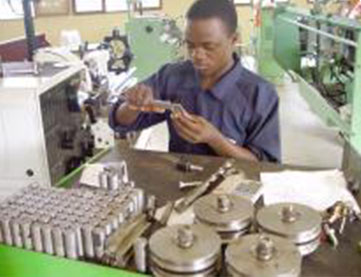
Salesian Missions includes agriculture in its vocational training programs – to ensure that youth of Rwanda learn better agricultural practices as well as keep the school self-sustaining in the face of the country’s food shortages.